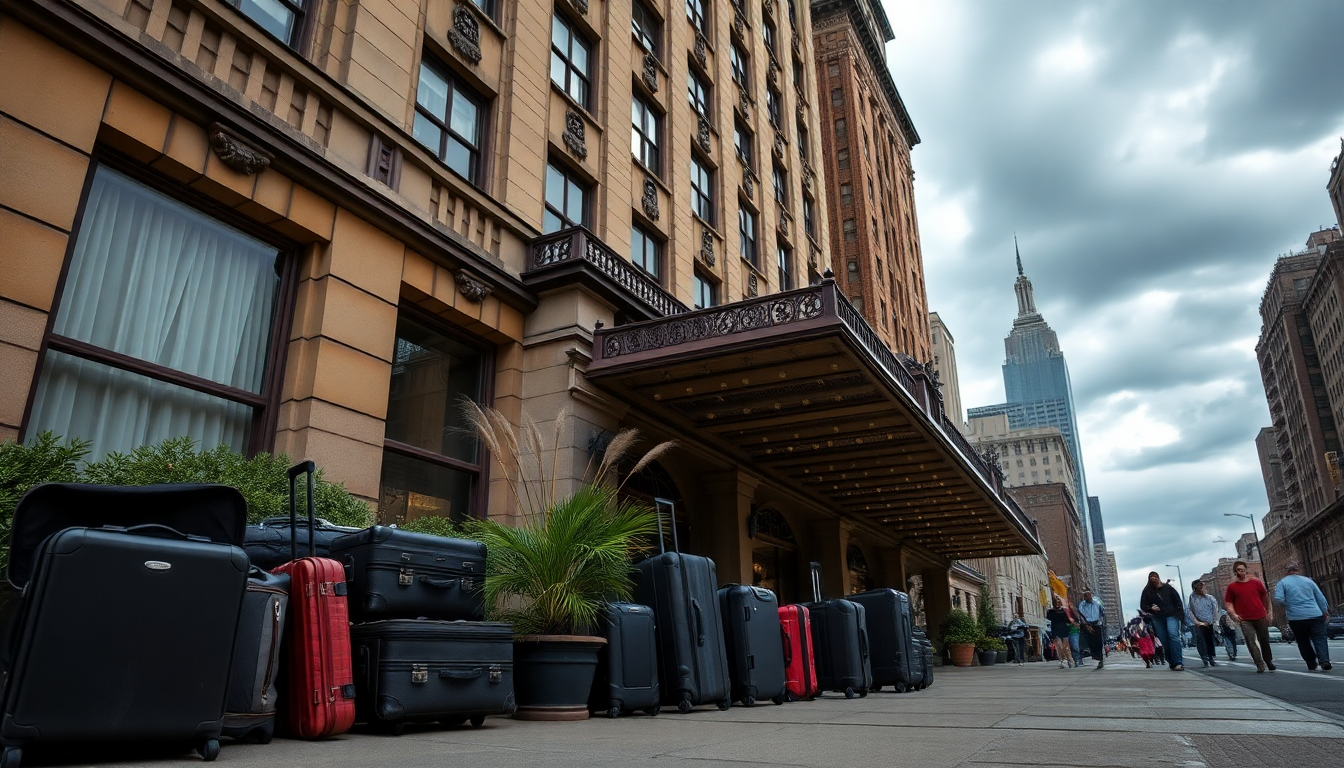Table of Contents
The Roosevelt Hotel in Manhattan has not just been a landmark; it has also become a focal point in the city’s ongoing migrant crisis. With its impending closure, we’re left to reflect on what this transition really means. Once a bustling shelter for thousands of asylum seekers, the hotel is now returning to its original purpose, leaving behind a legacy filled with both challenges and a complex future. With only a few families still there, this closure signals the end of a three-year saga that has both captivated and tested New York City.
The Roosevelt Hotel: A Brief History as a Shelter
When the Roosevelt Hotel was transformed into a migrant shelter in May 2023, it became the first stop for many of the 230,000 migrants who arrived in New York City. At its peak, nearly 2,900 individuals were housed within its walls, drawing substantial taxpayer resources to keep it running. Mayor Eric Adams announced the shelter’s closure back in February, claiming the city was moving past its most urgent migrant challenges. But for many, the reality is still fraught with uncertainty. What happens to those still in need?
The closure of the Roosevelt isn’t just a logistical shift; it’s a reflection of New York’s broader narrative surrounding its approach to the migrant crisis. As the city deals with an influx of asylum seekers, its strategies for providing shelter and support have come under intense scrutiny. The hotel has become a symbol of both the struggles migrants face and the tensions that have arisen within local communities.
Current Conditions and What Lies Ahead
Reports from late last week show that only a small number of families remain, highlighting how quickly occupancy has declined. The former shelter is currently undergoing cleaning and repairs as it prepares to return to its previous role as a hotel. However, for many former residents, this closure brings up pressing questions about future housing and safety. One Venezuelan asylum seeker recently expressed her fears and uncertainty as she searched for a new place to stay. Can you imagine facing such unpredictability?
But the challenges haven’t been limited to just housing. The Roosevelt Hotel has also encountered serious security issues. Allegations of gang activity and criminal incidents linked to the shelter have complicated its legacy. Sadly, this overshadows the plight of many genuine asylum seekers, who are often unfairly judged because of the actions of a few. Isn’t it a shame that their stories get lost in the noise?
Real Estate Opportunities at the Roosevelt Hotel
As the shelter transitions back into a hotel, speculation about its future in the real estate market is heating up. Analysts believe that this property, which was once owned by Pakistan International Airlines, could sell for as much as $1 billion. With its prime location in midtown Manhattan, the Roosevelt Hotel is perfectly positioned for redevelopment, possibly paving the way for new luxury accommodations or even a skyscraper aimed at a different clientele. Are we ready to see what comes next?
Investors and stakeholders are keeping a close eye on these developments, as the shelter’s closure could indicate a significant shift in local market dynamics. The focus will likely shift to understanding the potential return on investment (ROI) and cap rate for the property, all while considering how it fits into the bigger picture of New York City’s real estate trends.
Conclusion: Navigating a Complex Future
The closure of the Roosevelt Hotel shelter marks a pivotal moment that encapsulates the multifaceted challenges New York City faces in addressing the migrant crisis. As we look to the future, it’s crucial to consider not only the immediate impacts on those affected but also the wider implications for real estate and community development in Manhattan. The shift from shelter back to hotel raises essential questions about housing, safety, and the future of urban living. What do we want that future to look like?
As the city continues to navigate these complexities, the lessons learned from the Roosevelt Hotel’s experience as a shelter will undoubtedly shape future policies and strategies aimed at supporting vulnerable populations while balancing the interests of the real estate market. Are we ready to learn from this chapter?


